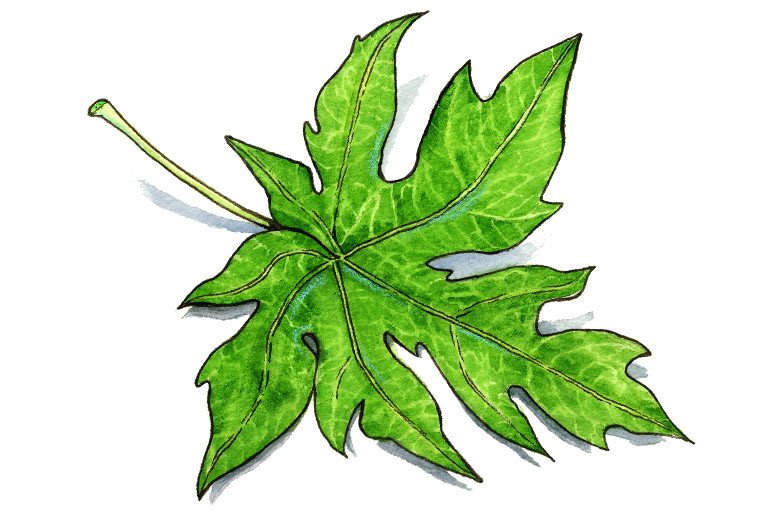
Common Names
- Pawpaw
- Papaw
For Patients & Caregivers
Tell your healthcare providers about any dietary supplements you’re taking, such as herbs, vitamins, minerals, and natural or home remedies. This will help them manage your care and keep you safe.
Papaya leaf extract may improve platelet counts, but more study is needed.
The papaya tree is common to many tropical regions of the world. Papaya leaves and their extracts are sold as dietary supplements to improve the immune system and increase platelet counts.
Lab studies showed that papaya leaf extracts have antibacterial effects. A few clinical studies found benefits of papaya leaf extract in treating dengue fever and in increasing platelet counts.
- Antimicrobial
Lab studies show that papaya leaf extracts can stop the growth of a variety of bacteria. - Improve platelet count
Papaya leaf extract was found to increase platelet count in patients with dengue fever.
- Mild gastrointestinal disturbance
- Rash
Do Not Take if:
- You are pregnant: Papaya leaf may not be safe.
- You have a liver impairment: Papaya leaf may not be safe.
For Healthcare Professionals
Papaya tree is commonly found in tropical areas around the world. The fruits are consumed as food and medicine. Dried and powdered stems and leaves are prepared as medicinal teas to protect against infections and improve digestion. Papaya leaves and their extracts are also marketed as dietary supplements to enhance the immune system and improve platelet function.
In vitro, papaya leaves exhibited immunomodulatory (1), antioxidant (9), anticancer (11) (12) and antibacterial (4) effects. Papaya leaf extracts were shown to increase platelet counts (2) (16), to reduce alcohol-induced stomach damage (5), and to have hypoglycemic effects in murine models (10).
Clinical studies have reported benefits of papaya leaf extract in treating dengue fever and improving platelet counts (3) (13) (17) (18). Larger studies are needed to increase the evidence base.
- Antimicrobial
- Low platelet counts
Major compounds identified in C. papaya leaf are rutin, carpaine, manghaslin, papain, and clitorin (15). Papaya leaf extract modulates the immune system by enhancing the production of Th1 cytokines such as interleukin-12, interferon-gamma, and tumor necrosis factor-alpha. Fractions with molecular weight less of than 1000 are most active in inhibiting tumor cell growth (1). Papaya leaf extract also has antioxidant effects (5) and contains antibacterial and phenolic compounds (6) (8) but the mechanism of action remains unclear.
- Pregnant women and those with liver impairment should use caution as animal studies have raised concerns about potential toxicities in these groups with long-term use (15).
- Although preclinical studies suggest potential interactions with hypoglycemics, P-glycoprotein substrates, and some antibiotics, no specific compounds or biomarkers of C. papaya leaf have been identified as contributors to these interactions (15). Clinical relevance has yet to be determined.